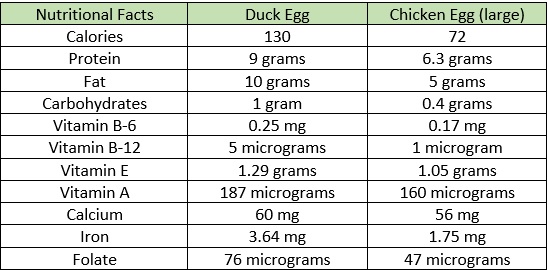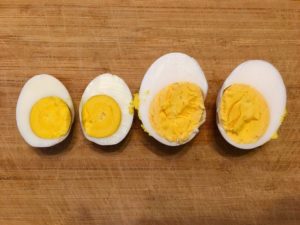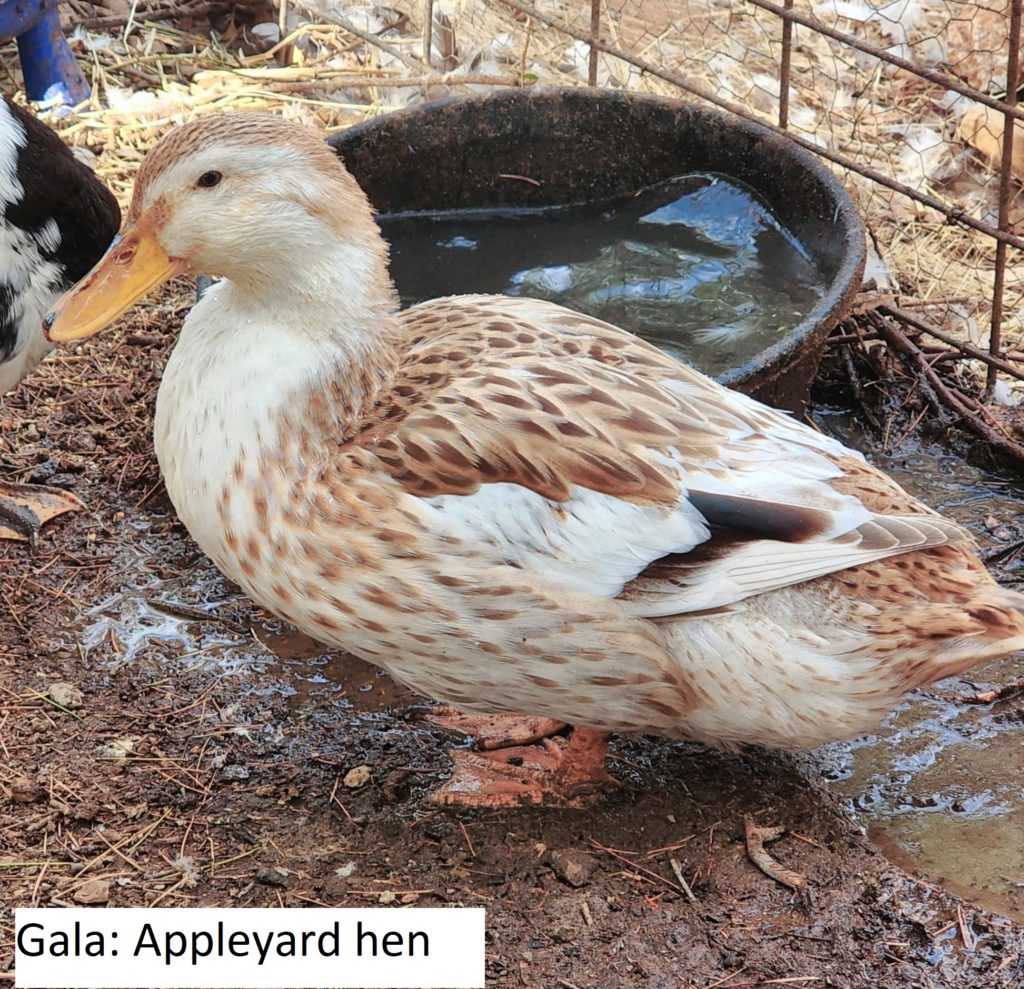Duck Eggs
Duck eggs are only slightly larger than a standard large chicken egg. However, they are more nutrient dense. They also have a more full and rich flavor. Click on the topics below to learn more!

(Source: USDA Food Composition Databases, 2018; Angel (1993); ‘Du Preez (1991)).
While all eggs are packed full of nutrients, the duck egg has higher amounts of some key nutrients. For example, duck eggs have five times the amount of vitamin B-12 than a chicken egg.
Although duck eggs have more nutrients then chicken eggs, they also are higher in calories and have twice the amount of fat content. This is what gives them their rich taste. Eating one duck egg will give you the same energy and nutrients of about two chicken eggs.

The (raw) yolk of a duck egg is a deeper orange color than chicken eggs. The yolk is also slightly thicker, or more viscous.
The duck egg has a creamier, eggier taste. I find the taste and texture similar to that of scrambled chicken eggs made with cheddar or cream cheese mixed in.

- Duck eggs have a larger yolk-to-white ratio that makes them ideal for baked goods. Baked goods made with duck eggs tend to be moist and fluffy, rise better, and hold their shape well.
- Ducks can lay eggs with shades of white, blue, green, black, grey, or speckled depending on their breed.
- Ducks prefer to lay their eggs near water, and covered by either tall grass or in a tree hole.
Limited supply! Ask for availability. Selling for $6 per 1/2 dozen!
Farm fresh duck meat

We raise small batch duck for meat. These ducks are free- range, hormone and antibiotic free. They are fed organic grains and natural forage.
We have a variety of breeds from leaner to more plump. In general, duck has a strong, fatty, slightly sweet and red meat flavor. It has a texture more like steak than chicken.
Birds are sold whole, $9 per pound.
Our meat ducks are raised in small batch. Check for availability and pricing.
Meet our breeder ducks






